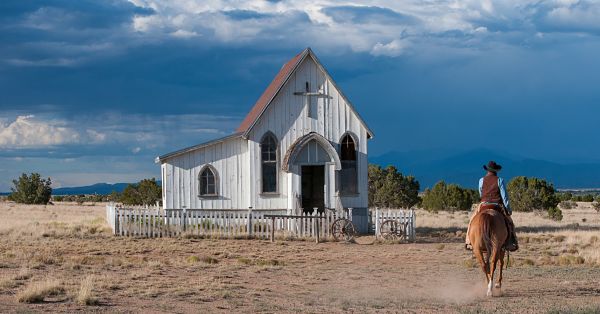Why True Christianity Can Never Be an Ideology
This is my promised follow up to the immediately preceding post about ideologies. It is best that you go back and read that before reading (and certainly before responding to) this one.
One of the characteristics of an ideology is its “totalizing” character. Typically, ideologies claim, implicitly if not explicitly, to explain everything important to the exclusion of all correction or criticism. Further, ideologies tend to treat critics as enemies.
This is, indeed, how many people, both Christian and non-Christian, view Christianity. But I argue that is a mistake. Yes, some people have turned Christianity into an ideology but only by leaving true Christianity behind. They still call their ideology “Christianity” but when one compares it with the gospel of Jesus Christ—it isn’t one.
*Sidebar: The opinions expressed here are my own (or those of the guest writer); I do not speak for any other person, group or organization; nor do I imply that the opinions expressed here reflect those of any other person, group or organization unless I say so specifically. Before commenting read the entire post and the “Note to commenters” at its end.*
First, true Christianity must be voluntary; there is no hint in the New Testament or the ancient church fathers (before Constantine) that Christianity should or could be coerced, forced, imposed.
Second, true Christianity does claim to explain much of human experience in a way more profound than alternatives, but it does not claim to explain everything. There is no “Christian economics” or even “Christian political system.” Certainly some economic and political systems are contrary to true, authentic Christianity, but true, authentic Christianity does not require anyone to adopt a particular economic or political system.
Third, true Christianity does not encourage making enemies of people who are not Christians.
Now, these three points should be obvious to anyone who reads the New Testament and the ancient church fathers with clear eyes.
The problem is…that over the centuries since Constantine and Augustine “Christendom” has been substituted for true, authentic Christianity by many powerful Christians.
So where may true, authentic Christianity be found if not in Christendom?
Many places. But one has to look for it. It doesn’t jump out from the television set or radio.
It is my considered opinion, as a student of the New Testament and the ancient church fathers and of all Christian history that true, authentic Christianity can be found (among other places) especially among the Anabaptists, the Free Churches, the Base Communities, the Believers Churches, etc. If you want to read about this Christianity read Donald F. Durnbaugh’s magisterial (but relatively brief) book The Believers’ Church: The History and Character of Radical Protestantism (The Macmillan Company, 1968).
*Note to commenters: This blog is not a discussion board; please respond with a question or comment only to me. If you do not share my evangelical Christian perspective (very broadly defined), feel free to ask a question for clarification, but know that this is not a space for debating incommensurate perspectives/worldviews. In any case, know that there is no guarantee that your question or comment will be posted by the moderator or answered by the writer. If you hope for your question or comment to appear here and be answered or responded to, make sure it is civil, respectful, and “on topic.” Do not comment if you have not read the entire post and do not misrepresent what it says. Keep any comment (including questions) to minimal length; do not post essays, sermons or testimonies here. Do not post links to internet sites here. This is a space for expressions of the blogger’s (or guest writers’) opinions and constructive dialogue among evangelical Christians (very broadly defined).












